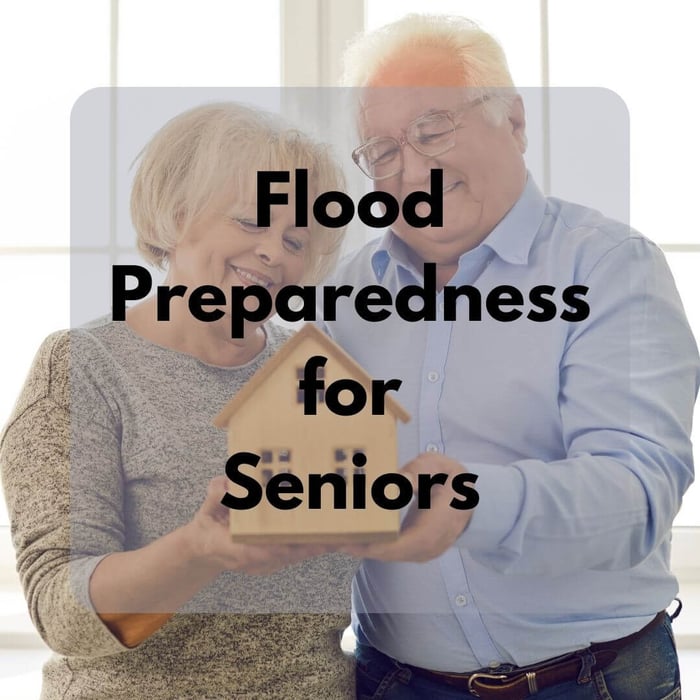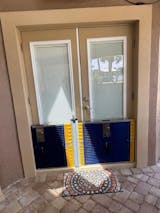Floods can be devastating natural disasters that affect communities across the United States, including states like New York, Vermont, Massachusetts, and Connecticut. While everyone is vulnerable to the impact of floods, seniors often face unique challenges during these emergencies. As such, it is crucial to address their specific needs and concerns to ensure their safety and well-being. In this article, we will explore the special considerations for flood preparedness for seniors in these states.
Understanding the Risks
Before delving into flood preparedness, it's important to recognize the specific risks faced by seniors in flood-prone areas. Seniors, generally defined as individuals aged 65 and older, often have limited mobility, and health issues, and may rely on medication or medical equipment. Here are some key considerations:
1. Mobility Issues: Many seniors may have limited mobility, making it difficult to evacuate quickly or access emergency services.
2. Medication and Health Needs: Seniors often require prescription medications and have specific health needs that must be met during emergencies.
3. Social Isolation: Some seniors live alone and may lack a support system, making it crucial to ensure their safety during flood events.
4. Cognitive Impairments: Those with cognitive impairments, such as dementia, may have difficulty understanding and following emergency instructions.
Flood Preparedness for Seniors
1. Create a Personal Emergency Plan
Seniors should have a personalized emergency plan that takes into account their unique needs. Here's how to get started:
- Evacuation Plan: Identify accessible evacuation routes and transportation options. Ensure that someone knows your plan and can assist you if needed.
- Emergency Contacts: Maintain an updated list of emergency contacts, including family, friends, and healthcare providers.
- Medication and Health Supplies**: Keep a supply of essential medications, medical supplies, and important medical documents readily accessible.
Communication Plan: Establish a communication plan with loved ones and neighbors, especially if you live alone. Ensure you have a way to charge your phone and stay connected.
2. Build a Basic Emergency Kit
Create a basic emergency kit that includes essential items for survival. In addition to the standard supplies, consider adding:
Extra Medications: Keep a seven-day supply of essential medications, along with copies of your prescriptions.
Medical Equipment: If you rely on medical equipment like oxygen tanks or mobility aids, ensure you have backup power sources or alternatives.
Personal Hygiene Items: Include items like adult diapers, hearing aids, and eyeglasses.

3. Stay Informed
Keep yourself informed about potential flood events by monitoring local news and weather updates. Invest in a weather radio or emergency alert system that can provide crucial information during emergencies.
4. Form a Support Network
Seniors living alone should establish a support network. Neighbors, friends, or local community organizations can provide assistance during floods. Consider joining or forming a senior emergency preparedness group in your area.
5. Practice Evacuation Drills
Regularly practice evacuation drills to ensure you and your support network are prepared to act swiftly during a flood emergency. This will help identify any issues with your plan and improve overall readiness.
6. Get Flood Barriers
One valuable addition to flood preparedness for seniors in flood-prone areas is the use of removable flood barriers for homes. These barriers are lightweight, easy to install, and equally effortless to remove, making them an ideal solution for seniors who may not have the physical strength or technical skills required for more complex flood protection methods. Unlike traditional sandbags or permanent flood defenses, removable flood barriers are designed to be user-friendly, often requiring no additional equipment or special training. This innovation empowers seniors to quickly and effectively safeguard their homes during flood emergencies, providing them with an extra layer of protection and peace of mind.
7. Seek Local Resources
Local government agencies and non-profit organizations often offer resources and support for seniors during emergencies. Research the available resources in your area and establish connections with these organizations.
8. Flood Insurance
Consider purchasing flood insurance to protect your home and belongings. Regular homeowners' insurance typically does not cover flood damage.
Conclusion
Flood preparedness for seniors in states like New York, Vermont, Massachusetts, and Connecticut requires a tailored approach that addresses their unique needs and challenges. By creating a personalized emergency plan, building a suitable emergency kit, staying informed, forming a support network, practicing evacuation drills, and seeking local resources, seniors can enhance their safety and resilience in the face of flood emergencies. Remember that being proactive and prepared can make all the difference in ensuring the well-being of our senior community members during these challenging times.
Are you ready to take the next step in securing your home against flood emergencies with ease? Contact Dam Easy Flood Barriers today to discover more about flood preparedness and how our lightweight, user-friendly flood barriers can protect your home and loved ones. Don't wait until it's too late; be proactive in safeguarding your property. Reach out to Dam Easy Flood Barriers now, and let us help you stay safe and prepared. Your peace of mind is just a call or click away!
$949.00
DAM EASY® FLOOD GATE - DOOR DAM Floods are becoming more common around the world. What was once a 100-year phenomenon is now a seasonal trend that homeowners must deal with. That’s EXACTLY why you need this Dam Easy Flood… Read MoreFlood Barrier Door Dam - Ultimate Flood Gate




















